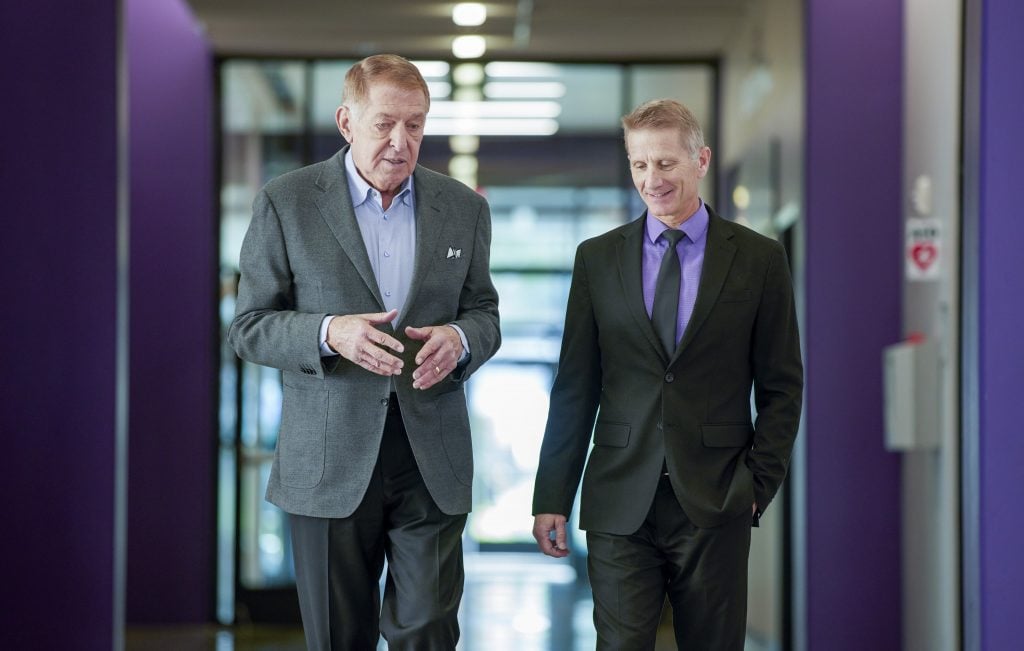
EDITOR'S NOTE: This story was originally published in the November issue of GCU Magazine.
Photos by Ralph Freso
Jerry Colangelo arrived in Phoenix in 1968 with his wife and three children and $200.
It was a humble beginning for the Illinois native, who would ascend to become Arizona’s top sports executive over the next four decades, serving as head of USA Basketball and owner of the Arizona Diamondbacks, Phoenix Suns and other professional sports franchises.
But even after his sports executive career, Colangelo, who originally wanted to be a teacher and coach, continues to make an impact as one of the state’s most influential businessmen, one who chose to shine his light on Grand Canyon University.
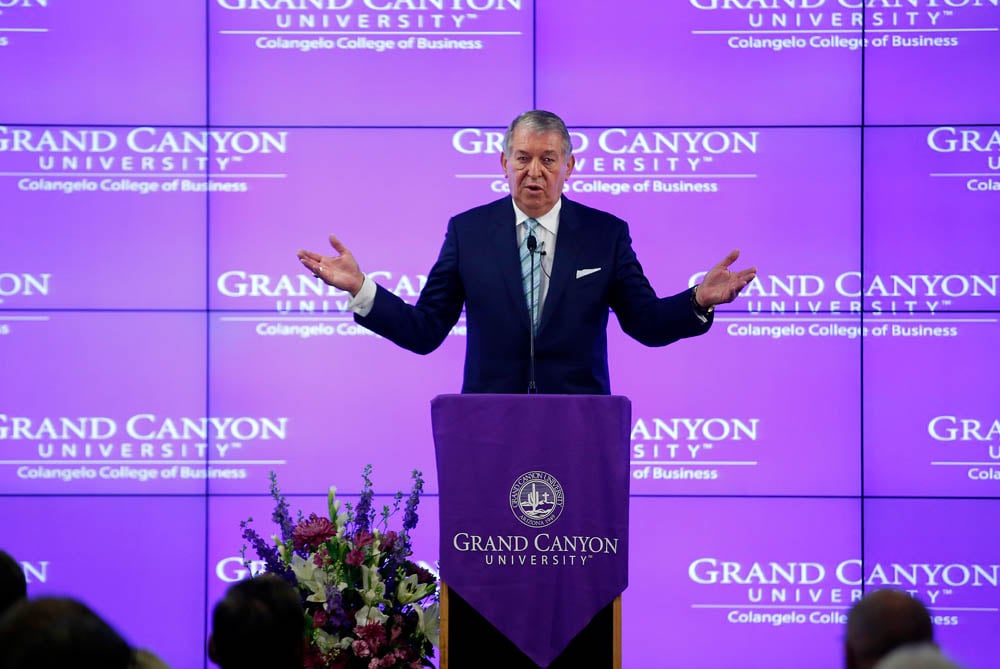
GCU opened the Colangelo School of Sports Business in 2012, then took a monumental step two years later by renaming the entire business college after him.
University President Brian Mueller in 2019 said Colangelo gave GCU an amazing boost: “We were struggling for credibility early on, and having his name here gave us credibility.”
In the last 10 years, leaders in the Colangelo College of Business have crafted a formidable entrepreneurial ecosystem worthy of Colangelo’s name.
“I think, holistically, of what has transpired with GCU over the last 15-16 years, and it’s an amazing story,” said Colangelo, who is extremely involved in the CCOB, from speaking to students in many of their classes to serving on boards to celebrating community members with the Colangelo Servant Leadership Awards. “The growth of the business school, in terms of numbers, in terms of quality, grade point averages, faculty and in terms of raising the bar, it’s been an amazing run. It’s very satisfying.”
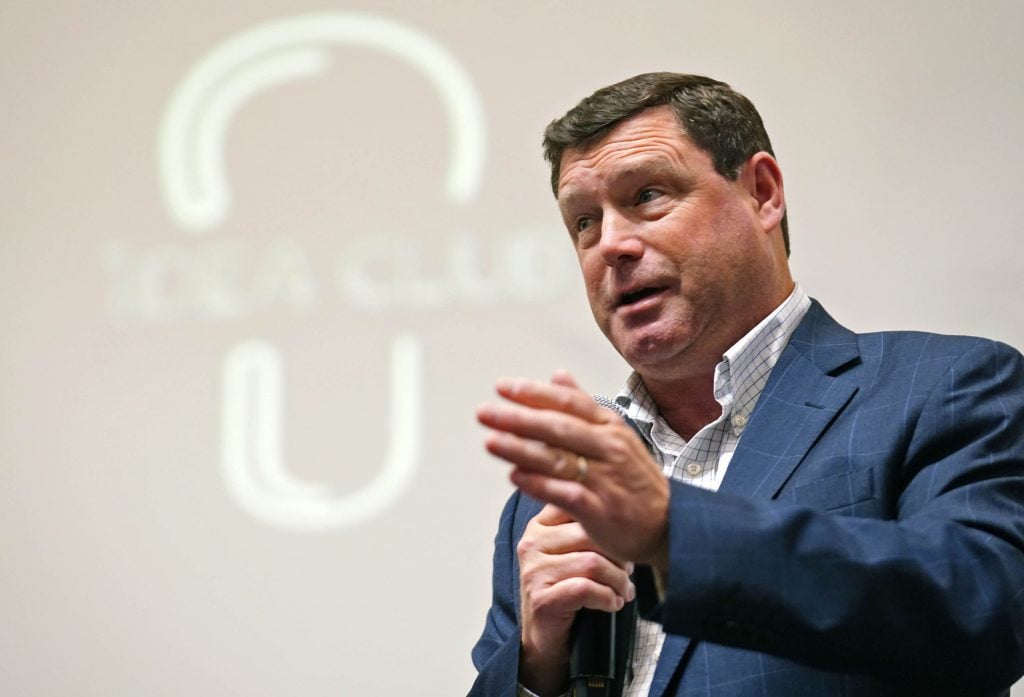
That vibrant business environment aligns with Colangelo’s values and how he’s guided by conscious capitalism, a business philosophy that considers the impact of a business’ actions on people, the environment and other stakeholders. The college wants to see young entrepreneurs develop, not just into skilled businessmen and businesswomen, but into caring, responsible global citizens who will be a force for good.
The foundation of that ecosystem -- servant leadership, ethics and entrepreneurism - are the pillars of the college.
“That is the core of our Christian mission,” said Tim Kelley, the CCOB chair of entrepreneurship. “I love the message of servant leadership precisely because it’s not about telling other people what to do.
“It’s about inspiring them to pursue their mission, their goal, and then find an alignment of goals and mission, where it’s a team effort and there’s a natural division of labor that occurs that’s self-guided, rather than dictated.”
According to university statistics, the number of Colangelo College of Business graduates from 2014 to 2023 has gone from 1,922 to 5,311, an increase of 176%.

And ground campus enrollment has risen 288%, from 1,965 undergraduate students in 2014 to 7,627 in 2024.
During the last decade, the CCOB has fortified its entrepreneurship commitment through initiatives such as startup business accelerator Canyon Ventures and angels investment group Canyon Angels, while expanding its national profile through the Charles Schwab Foundation Finance Center and its popular Canyon Challenge competition, modeled after TV's "Shark Tank."
Student involvement is heavily reflected by 13 clubs, including the IDEA Club, which reported that its student vendors produced more than $300,000 at six Marketplace events last school year, as well as TEDxGCU and the Women in Business, which touts more than 700 members. There’s also a newly formed Real Estate Club.
The CCOB’s growing popularity also has attracted prominent speakers, including Colangelo, who is passionate about helping students.
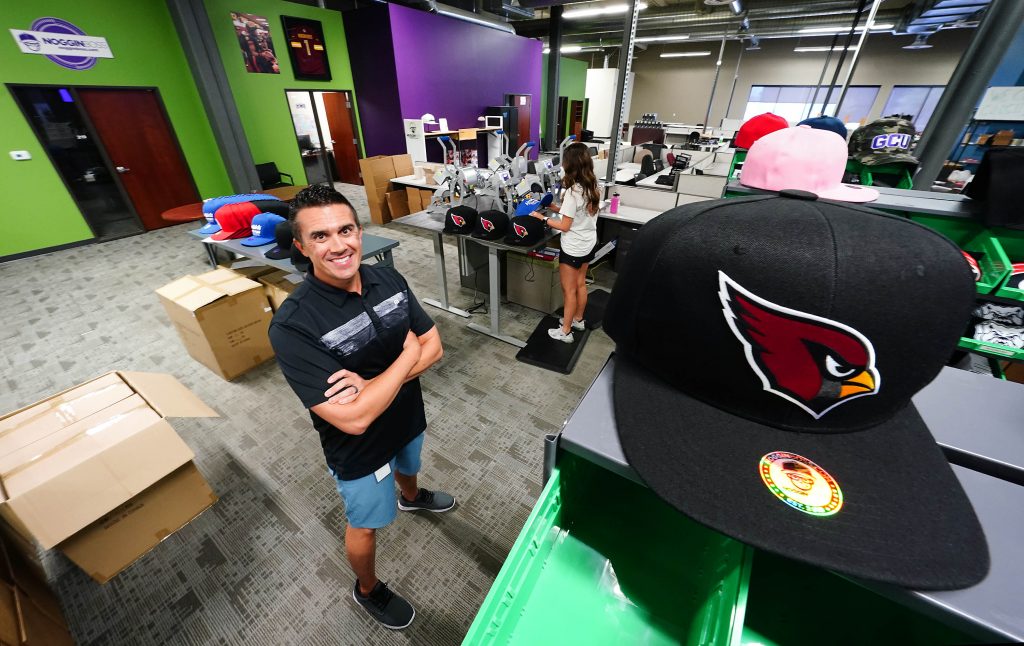
“To be able to help them in their journey, put them in the right direction, share stories with them, because of my experiences that I’ve had during these last 40-50 years, it’s very rewarding to me. But I think it’s had an impact on the students, too, because I speak from the heart. I speak truly from experience. It’s not out of a textbook. It’s been wonderful.”
“In my class alone, we’ll have Fortune 500 guest speakers,” said Canyon Ventures Founding Director Robert Vera, who teaches a business innovation class that produces Canyon Challenge contestants and entrepreneurs.
“There’s an abundance of guest speakers that come here. United States congressmen have spoken to my class. What our students get is those relationships, and those are the relationships that they’ll need when they get out. So GCU does that, and it does it really well.”
And the business college’s alumni base has become more prominent, too.
In 2019, Levi Conlow, who operated an electric skateboard company with GCU CityServe Director Nathan Cooper while they were still students, founded Lectric eBikes, one of the fastest-growing electric bike companies in America. It sold more than 400,000 eBikes in its first four years, and Conlow was named a 2022 featured honoree in Forbes’ 30 Under 30.
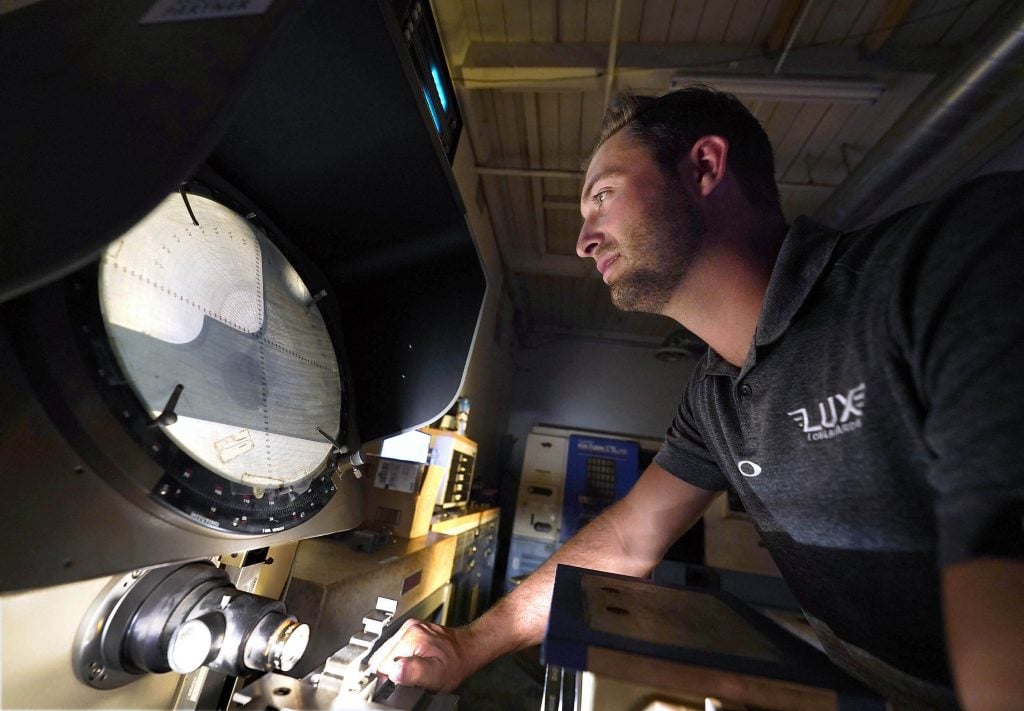
Weston Smith started elite electric longboard company Lux Longboards before shifting gears and launching Lux Precision Manufacturing. The company makes parts for defense, medical, aerospace and manufacturing industries.
And Gabe Cooper, housed at Canyon Ventures alongside Smith and Lux Precision Manufacturing, put GCU and Noggin Boss on the national stage by showcasing his brand of oversized hats with an appearance on “Shark Tank” in 2022. Cooper also secured sales licenses with the National Football League and the 2024 Summer Olympic Games, in addition to agreements with UFC, the PGA Tour and Hendrick Motorsports.
Canyon Ventures is also home to Big Time Jerseys, which customizes jerseys for such teams as the Phoenix Suns, Arizona Cardinals and Arizona Diamondbacks. Owner Patsy Elmer’s daughter, Christine Elmer Collins, is an alumna.
As part of their agreement with Canyon Ventures, companies agree to hire GCU’s students.
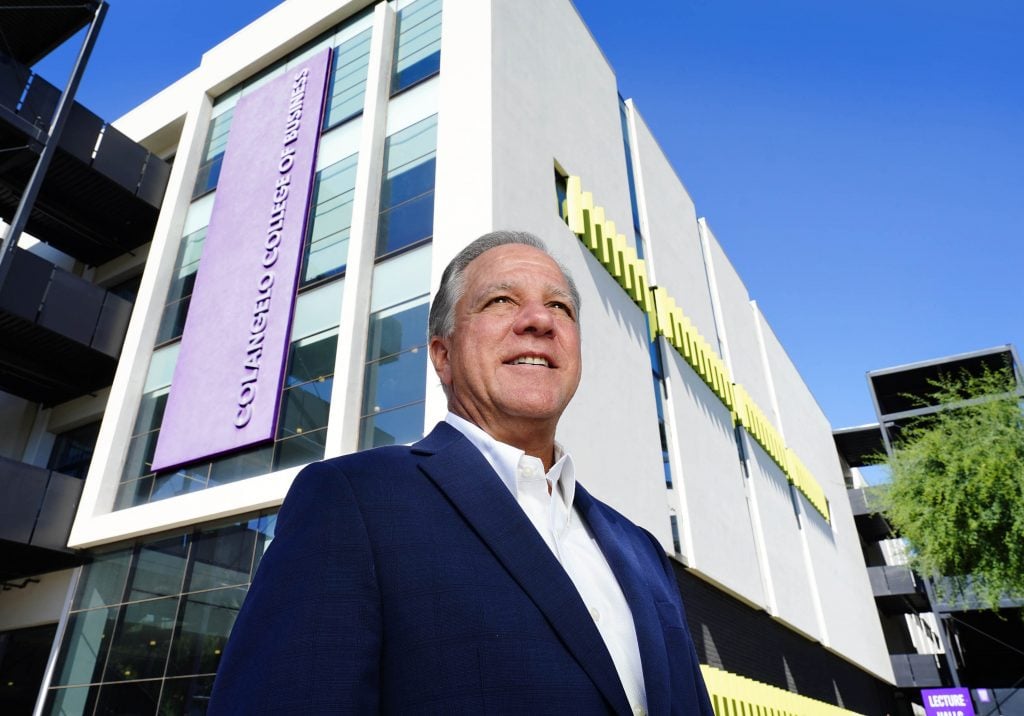
“We put a strong focus on education by experience,” said CCOB Dean John Kaites, chosen to lead the college in part because of his background in industry. He’s owner or part owner in real estate, technology and construction companies, served in the Arizona State Legislature and was counsel for Phoenix law firm Fennemore.
“We do want you to learn what’s in the books and what the accrediting bodies require you to learn,” Kaites said. “But we also want you to experience it so that when you go into the business world, whether it’s financial planning or finance or advertising or marketing or entrepreneurship … it’s not the first time you’ve experienced the challenges and issues that face businesses as they attempt to grow – that you’ve actually had that experience.”
Students not only gain experience working at Canyon Ventures but can do so at the businesses the university has launched as part of GCU Enterprises, such as GCU Golf Course, GCU Hotel, Canyon 49 Grill, Grand Canyon Beverage Co., Canyon Pizza Co. and Canyon Promotions.
And for students who might not get relevant work experience on campus, the business college continues to innovate.
“We’re experimenting with the metaverse on creating meta banks, where students get the real-life experience of what it’s like to operate in a bank setting,” Kaites said. “We’re attempting to build AI into all the things that we do around here so that students can use the value of AI to get the education and the experience they need to operate and be in every aspect of business.”
“One of the reasons why I like working here is because we have that flexibility,” Senior Associate Dean Dr. Allison Mason said of the college constantly trying new things. “If we have an idea, we can give it a shot and see what happens. And sometimes they work, and sometimes they don’t.

“But when they do work, we get to grow things like the Women in Business Club, or the IDEA Club has an idea on the marketplaces, and – boom! – there we go.”
Kaites believes the university’s entrepreneurial ecosystem is, “in my estimation, the best in the country,” because students from other GCU colleges are encouraged to bring their ideas about businesses, products and services to the CCOB.
The college helps those students, from whatever major, grow by surrounding them with the basic principles of business and “incubating them in a way to turn them into cash-flow positive businesses.”
“What I’ve learned in the last 10 years, and even longer, is that students thrive because we are promoting the importance of collaboration and community,” said Mason. “It’s all about working as a team, and that’s super important to me.
“We’re not here as the College of Business to compete with other colleges. We are here at this university for all of us to work together. And I think that’s a really important message to share with our students … What matters is working together to support your community.”
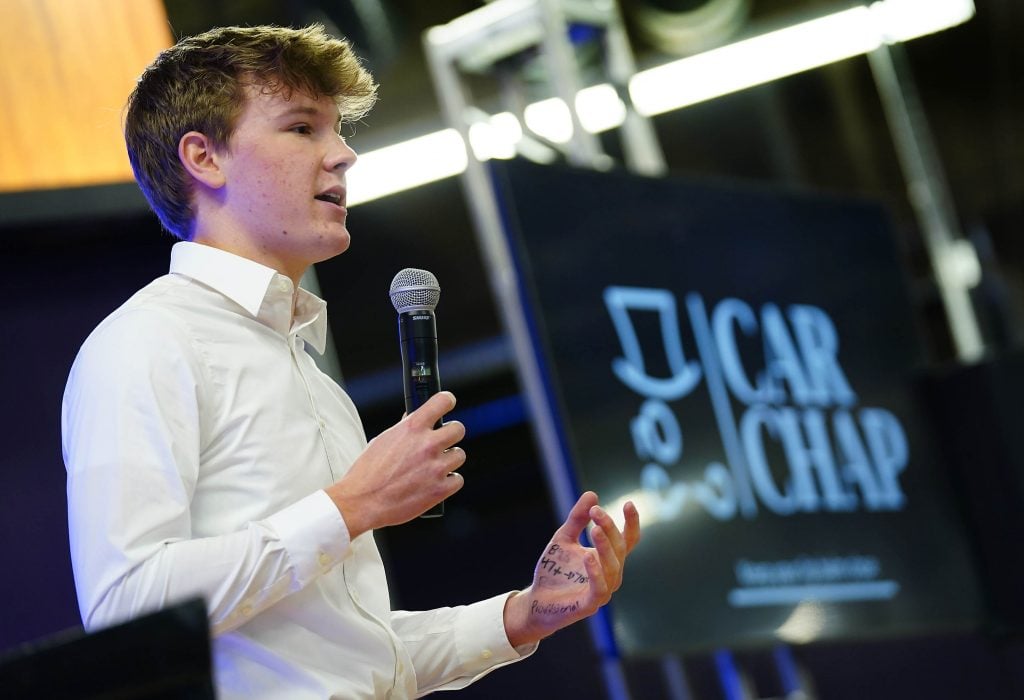
Lux Precision Manufacturing’s Weston Smith is an example of that cross-college collaboration and represents how the university’s entrepreneurial ecosystem spills into colleges across campus.
He earned a bachelor’s degree in mechanical engineering at GCU, before receiving a master’s in business administration and running his Lux business at Canyon Ventures.
IDEA Club president Caleb McCandliss, owner of CarChap, a lip balm holder that was featured in Car and Driver magazine, is an engineering major who encourages other colleges to engage in partnerships with the CCOB.
This fall also marked the first semester the College of Engineering and Technology’s engineering capstone process – when students create end-of-program projects to cap their college careers – included business majors as part of its capstone teams.
Mason credited GCU Provost Dr. Randy Gibb, former CCOB dean, for his support in encouraging innovative ways to connect with students and the industry “and bring everyone together.”
When Gibb was hired in 2014, he wanted to ensure that the college “wasn’t stuck in the 1980s.”
“When Randy took over, he just propelled the growth.” said Colangelo. “He was on a mission. And we really spent a lot of time together, the two of us, in terms of a game plan, trying to execute it. He was amazing. I give him an awful lot of credit for what transpired.
“And then more recently, John Kaites, the new dean, we decided we were going to think outside the box, and we did.”
The integration of conscious capitalism helped define the college’s identity. That concept has guided the CCOB on what kind of graduates it wants to produce – leaders who see business as a force for good and embrace it as a ministry. It’s the blending of faith and free markets.
“I am here because they (the college’s leaders) have shared the vision,” said Kelley, chairman and founding member of Canyon Angels, an investment group in which student analysts screen deals and vet businesses before presenting their findings to investors. “They have allowed us to experiment in ways that no other universities do, from our angel investor group to our marketplaces to our co-working space.
“No other university really has been able to assemble these pieces in a way that we have, that I think is unique in higher ed across the country, if not the world.”
CCOB graduate assistant Connor Vicary fully embraces the college’s vision of business with a higher purpose.
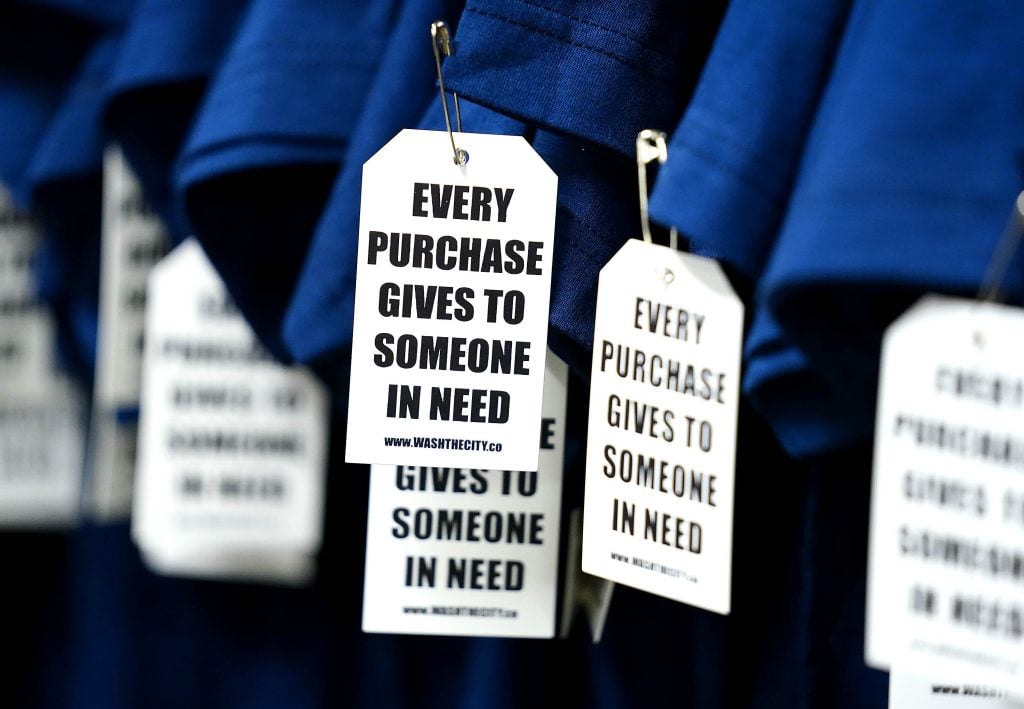
“We’re so big and are so focused on creating servant leaders that are creating businesses, to quote the dean, ‘creating ministries that are disguised as businesses," said Vicary, a former IDEA Club president. “We’re loving and giving out to the community, even when we’re selling entrepreneurial packages for others to start their car detailing businesses.”
Andrea Northup, who won the 2018 Canyon Challenge with a bowtie business designed to aid Lakota American Indians coping with poverty and helplessness, learned how to be a Christian and business owner through the pillars of servant leadership, ethics and entrepreneurship that her professor taught her as a business management major.
Northup, now the assistant director of state and community relations at GCU, learned, “When you need to have hard conversations, keep people accountable.
“That relates into the ethics part. This is something the College of Business had done so well and eased so many of my concerns, where I’m like, ‘OK, business has to make a profit to keep moving.’
“But that doesn’t mean that you’re elevating making money above God and above loving others.”
GCU alumnus George Holm, chairman and chief executive officer of Fortune 100 company Performance Food Group, believes the Colangelo College of Business’ stature will continue to grow.
“When your academics are getting better and better, it takes about 10 years longer to get the recognition because it (your past) is chiseled in people’s heads,” Holm said. “ … I think that’s going to happen with Grand Canyon.”
Vera believes the college has grown steadily because its students, who have chosen to be on a Christian campus, are looking for something different.
For Vera, the difference is that the college puts students first.
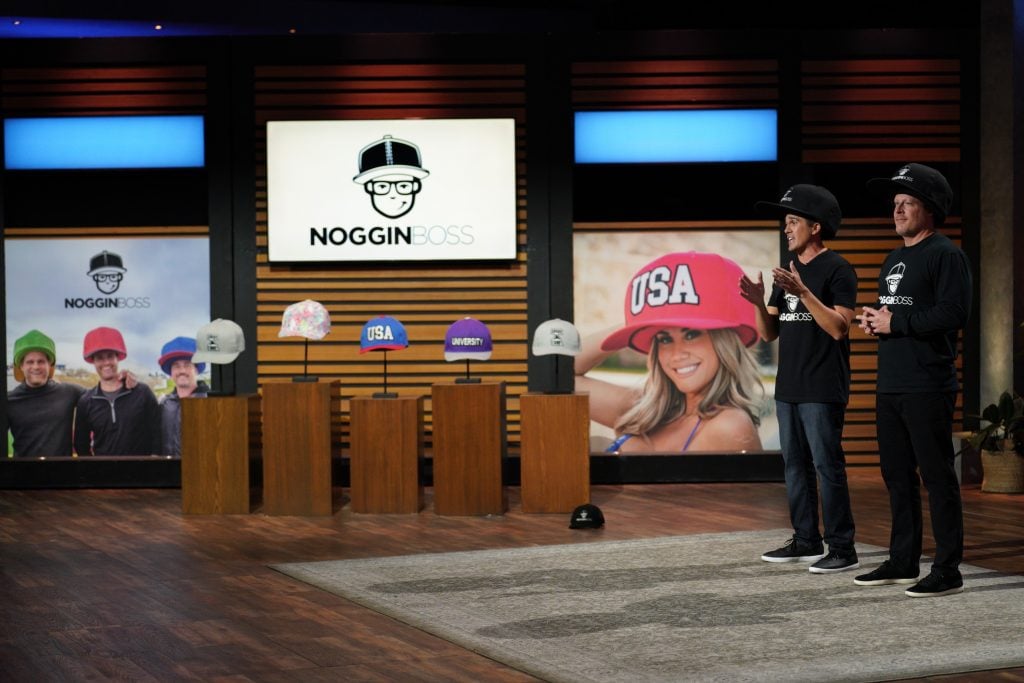
“We give them an unfair advantage through all the resources that we have here,” said Vera, pointing to the IDEA Club and other associations that give students professional experiences that enhance their classroom experiences.
“My focus is to make sure the students in my classroom have the resources, the training, and are equipped to go out to the marketplace and make a difference day one when they graduate.
“GCU has invested heavily in that,” he said. “GCU has invested in all the extracurricular. That’s fully aligned to the curriculum so that students now can actually apply what they’ve learned in the classroom directly into a student extracurricular program that gives them that competitive advantage in the marketplace.”
Connor Vicary said that everything the college does, “It’s all done out of love, and that’s why I’m here. I could be trying to chase down a corporate job. But I wanted to be here. I love it so much."
GCU News senior writer Mark Gonzales can be reached at [email protected]
***
Related content:
GCU News: Colangelo Servant Leadership recipients generate tears, gratitude



































































